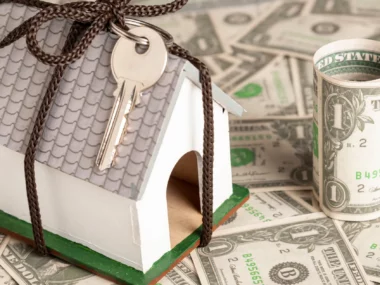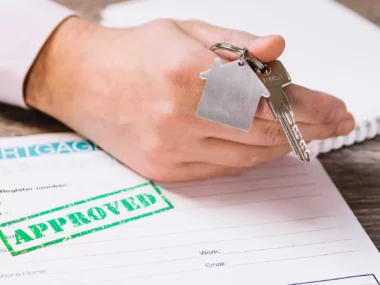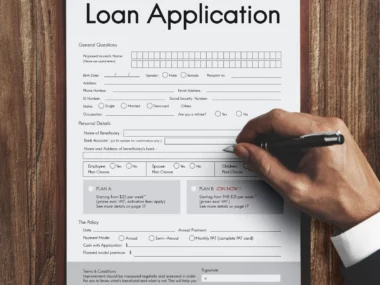Table of Contents
Home equity loans in Canada is a key to one of the most valuable assets that one can have in Canada. This asset is a house! It can double as a dwelling abode and a property that keeps on appreciating in value.
Another use of your home that you might not be aware of is that it is an easily accessible source of cash, especially if you have a big project that needs serious financing.
Huge projects such as home renovation can be funded by using the equity in your home to get a home equity loan.
As a homeowner, you can use your home as collateral to get a secured loan, and since there is collateral involved, you are bound to get a good interest rate from the lender.
As easy and beneficial as home equity loans are, it is pertinent to also point out that there are some downsides that come with them, such as the risk of losing your home if you are unable to repay the loan.
Before making a decision as to whether a home equity loan is the right move for you, take your time to read this helpful article on Home Equity Loans in Canada.
What is a Home Equity?
This is the difference between the market value of your home and the balance on your mortgage. It is the totality of your down payment during the acquisition of your mortgage and the amount that you have paid since then. Your equity is an amount that increases as you make more payments on your mortgage or if you decide to make some improvements in the home. The market value of your home is another factor that dictates your equity.
If you have any debt that you have secured against the house, the amount of that debt needs to be deducted before you can call the rest of your equity.
What are Home Equity Loans in Canada?
These are secured loans that a borrower takes using their home as collateral. Also known as a second mortgage, this type of loans offer a fixed interest rate which is usually lower since you are putting down collateral.
What are the Requirements for Getting a Home Equity Loan?
- A minimum of 20% equity.
- An encouraging or manageable credit.
- An adequate income.
- Some documents for the loan application process.
What are the Types of Home Equity Loans in Canada?
Fixed-Term Loans
This is the type of home equity loan that is given to a borrower as a round sum. The interest rate on this type of loan is usually fixed.
Characteristics
- Fixed-term loans usually have a fixed interest rate.
- It is not hard to qualify for them.
- Your monthly payments will be based on the amount that you borrowed.
Home Equity Line of Credit (HELOC)
This is the type of home equity loan where you are pre-approved for a particular amount which you can withdraw as needed.
Characteristics
- The borrower is sometimes given a credit card.
- The interest rate here is adjustable (not fixed).
- Your monthly payments will be based on the amount that you have withdrawn.
What Can You Use a Home Equity Loan To Do?
There are many expenses that you can use home equity loans to settle, let’s take a look at some of them.
1. If you need to renovate your home or make some improvements but don’t have enough money to execute this project, you can always leverage your home equity to get a loan.
2. It can also be used to free up cash for foreseen expenses.
3. A home equity loan can be used to unify high-interest debts.
4. You can also use it to repair bad credit.
5. It can be used to settle outstanding debt for property tax arrears.
Is it possible to get a home loan with bad credit in Canada?
Since home equity loans are gotten using collateral, having bad credit is not going to hinder your ability to get one. However, not every lender will be willing to grant you a loan, but the ones who might be able to will have the following requirements:
1. You must have a source of income that is tied to steady employment.
2. You must have a debt-to-income (DTI) ratio that is less than 35%.
3. You must have a history of not being tardy with debt repayments.
4. You must have a credit score of at least 620.
5. You must possess a minimum of 15% equity in your home.
How Much Can You Borrow With A Home Equity Loan In Canada?
To get a home equity loan in Canada, you will need to use your equity, which is the difference between the value of your home and the amount that is left on your mortgage debt. Before you can use your home as collateral for a home equity loan, you are required to have at least 20% equity in it. Consequently, you can only use 80% of your home’s value minus the amount that is left in your mortgage debt.
Example:
For example, if you have a home with a market value of $500,000, then 80% of that is $400,000. If you still have a mortgage balance of $100,000, you could possibly secure a home equity loan of up to $300,000.
What Are The Benefits of A Home Equity Loan?
1. You have easy access to a lot of money since the loan will be secured using your equity.
2. Since the loan is secured, lenders will offer very attractive interest rates.
3. Home equity loans often have a long loan term that can range from one to ten years. This gives you the advantage of repaying your loans in small amounts over a long period of time.
4. Since the interest rate is low, your monthly payments will definitely be affordable.
5. With a fixed interest rate, you know the exact amount that you are owing and that won’t change for any reason whatsoever.
What Are The Drawbacks of A Home Equity Loan?
1. You run the risk of losing your home if you fail to repay the loan.
2. If you get a fixed-term loan instead of a home equity line of credit, there won’t be any flexibility on your monthly payments.
3. You may have to pay some fees if you decide to repay the loan earlier than the agreed payback time.
4. If it is already difficult for you to pay off your present mortgage, taking on a second one might not be the best move.
Is There A Difference Between A Home Equity Loan And Refinancing Your Mortgage?
While a home equity loan and refinancing your mortgage may be similar in the sense that they are both used to unlock one’s equity in a home, they differ in some other ways.
Basically, when you refinance your mortgage, you’re taking a new mortgage in place of the old one, which means you only have one mortgage, which is the new one. On the other hand, when you use your equity to take out a home equity loan, you still have the old mortgage and if you decide to get a new mortgage, it will be a second one. However, if you decide to use the equity to get a secured personal loan, you will have the new debt plus your current mortgage to pay off.
How Long Does It Take To Approve A Home Equity Loan?
Due to the secured nature of home equity loans (i.e. since there is collateral involved), the approval process of a home equity loan usually takes longer compared to getting an unsecured loan. This is because the lender would have to appraise the collateral (your home) to determine how much equity you have in it.
It could take a few days or weeks, depending on how quickly the appraisal is concluded and the paperwork is completed. If what you need the money for is so urgent that you can’t wait that long, you might want to try getting an unsecured personal loan. This is usually approved really fast, and you could even get it the same day you apply for it.
Although, if you can wait for the approval process of a home equity loan to be complete, you will enjoy the benefits that come with it, such as a bigger amount, a lower interest rate, and so on.
What is Equity Release?
An equity release is the process of freeing the money (equity) that you have tied up in owning a home. This is done by using your home as collateral for a loan, which is then paid back after the sale of the home. The sale of the home may happen after your death, so you won’t have to worry about working to repay the loan.
How to qualify for favourable Home Equity Loan rates
To get a favourable rate from home equity loan lenders, here are some of the requirements that you would have to meet.
1. A credit score of 620 and above.
2. A debt-to-income (DTI) ratio of not more than 43%.
3. A minimum of 20% equity in your home.
4. Evidence that confirms your ability to repay the loan.
5. An appraisal of your home by the lender.
What Happens If One Is Unable To Repay Their Home Equity Loan?
As it has been previously stated, your home is used to secure a home equity loan, which means your house is collateral that assures the lender of how safe it is to lend you money. The collateral raises your chances of getting loan approval, and you get a good interest rate on your loan. However, since your home is the collateral for the loan, if for any reason, you are unable to repay your loan, the lender has the right to sell your home and take proceed. Therefore, ensure you’ve given it a lot of thought before using your home to secure a home equity loan.
To Summarize:
Owning a house in Canada not only shelters you, it also serves as an easily accessible source of funds, which is accessed through home equity loans. Since you’ll be using your home as collateral for this loan, ensure that you know all that there is to know about Home Equity Loans in Canada before going for it, so you end up losing your home.
What to know how this applies to the USA, kindly check this.






